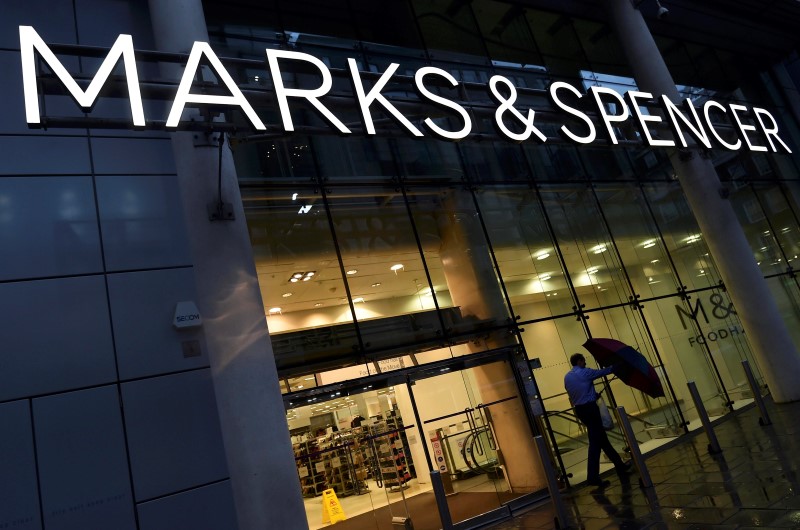By Geoffrey Smith
Investing.com -- Marks & Spencer (LON:MKS) just can’t win.
The embattled U.K. department store’s stock fell over 3% by mid-morning in London after doing what every analyst and investor hoped it would do by announcing it will cut 7,000 jobs to stem losses. It's now down 49% for the year.
While it’s some time since what went for M&S went for the whole of U.K. retail, the announcement nonetheless has implications beyond the company’s share price. It comes within days of the government announcing that it will wind down its wage-support scheme for struggling businesses in October, a decision that surely removed any lingering doubts M&S management may have had about how fast and how deep to cut. Similar announcements from other companies will surely increase in frequency.
The shares, which have been a prime example of the trends hurting traditional retailers even before the pandemic had actually been indicated higher in premarket after an early-morning release to the stock exchange. But they reversed almost immediately as attention switched to the uncomfortable fact that the statement still had no signs of a long-term turnaround for the business.
The cuts are equivalent to just under 10% of M&S’s workforce, and will mainly hit its high street stores and regional management. The number will be partly offset – to an unspecified degree – by hiring in online fulfilment and the company’s so-called ‘ambient food warehouse’.
“These proposals are an important step in becoming a leaner, faster business set up to serve changing customer needs,” chief executive Steve Rowe said in the statement.
As always, the problems lie in the company’s fast-withering home and clothing business, once the strongest name in U.K. retail.
Total revenue at that division was down 39% in the 13 weeks through August 8th, a figure that includes five weeks in which stores were shut by U.K. lockdown measures. In the eight weeks since they were lifted, sales at the division were still down nearly 30%. The best that M&S could say was that the trend was “steadily improving.”
It is, of course, a different story with the group’s food operations, which have been carved out into a joint venture with logistics specialist Ocado (LON:OCDO). Food sales were up 2.5%, despite the closure of many outlets embedded in Covid-affected travel hubs. Excluding those, sales were up 10.6%.
M&S said some of its newer out-of-town stores are now performing at close to last year’s levels. Online sales for the home and clothing lines have also done well, rising 46%. The problem, predictably, is with its big flagship stores in major cities, which continue to languish. The statement gave no indication of when a turnaround there could be expected.
The day when M&S spins off the food business into a separate listing to salvage some value for shareholders is surely approaching. For the rest, it seems just a question of time, and it is the coronavirus that will decide how much.
